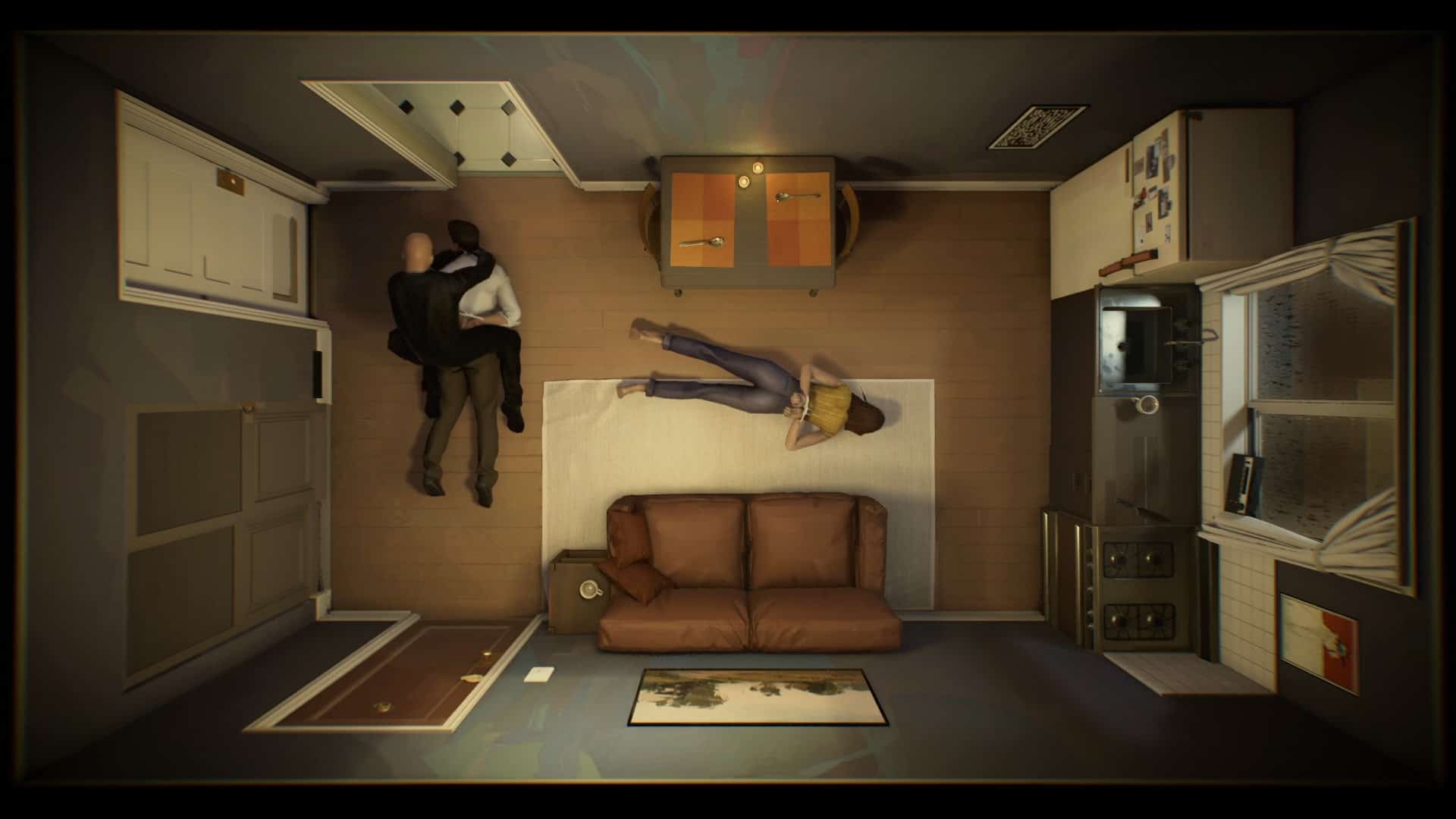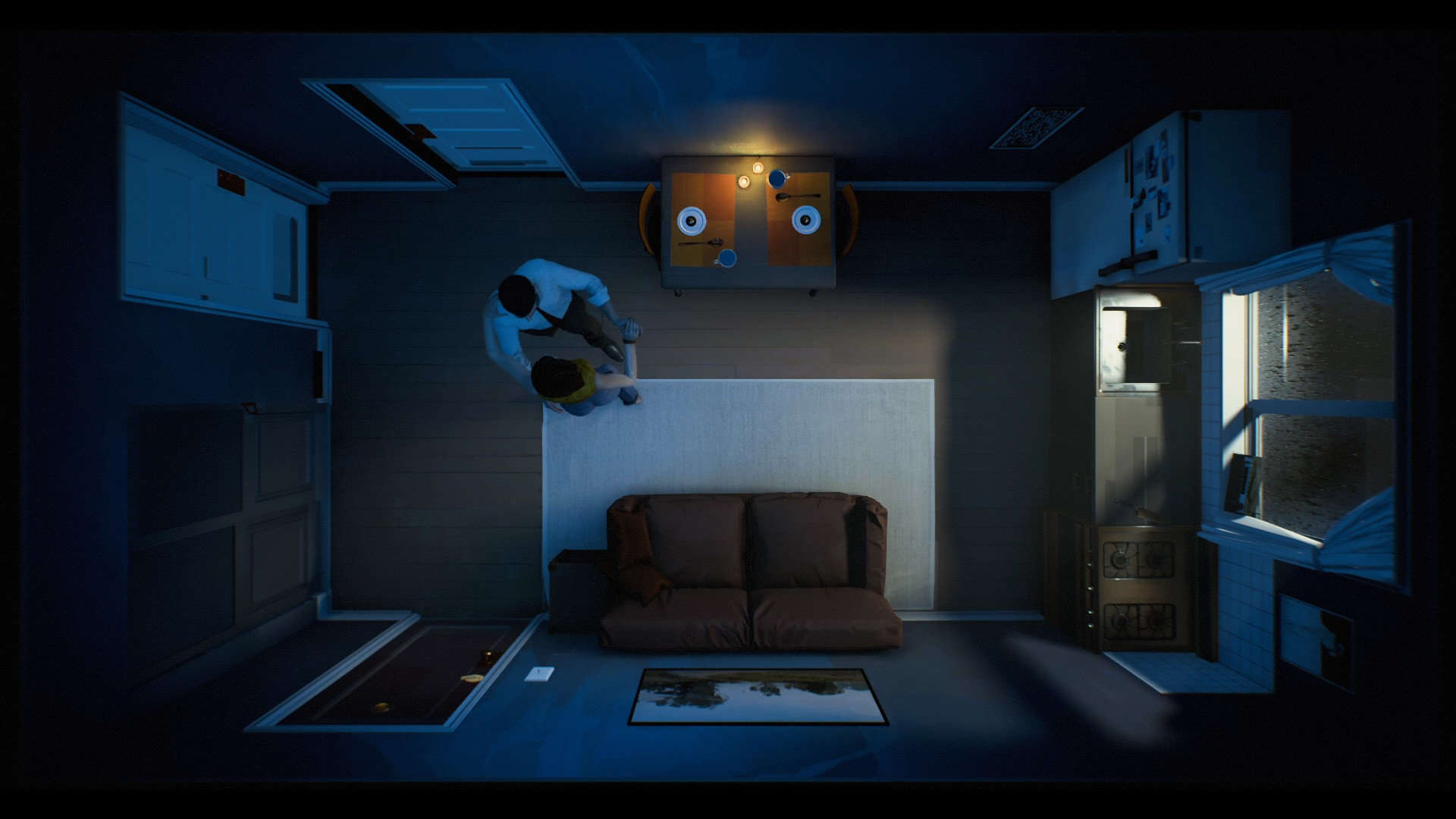You can trust VideoGamer. Our team of gaming experts spend hours testing and reviewing the latest games, to ensure you're reading the most comprehensive guide possible. Rest assured, all imagery and advice is unique and original. Check out how we test and review games here
Twelve Minutes is one of those games about a time loop, a genre that keeps coming back round. Ever since The Legend of Zelda: Majora’s Mask—in which Link managed to avert environmental catastrophe by recycling the same three days (it’s not easy being green)—we have been visited again and again by this theme. A few years ago, there was Outer Wilds, a spacefaring adventure set twenty-two minutes before a supernova. Earlier this year, we got Returnal, wherein an astronaut crashed on a doomy rock and continued to reboot her life, as though it were an ailing piece of software. Next month, we will get to sample the ceaseless delights of Deathloop. But for now we will have to make do with Twelve Minutes, whose stakes are hardly cosmic—no exploding suns or faraway moons, just a cozy drama made up of stars.
These include Daisy Ridley, James McAvoy, and Willem Dafoe, whose relation to one another ranges from soft twinkling to full-on shooting, depending on your decisions. Twelve Minutes is a point-and-click adventure game. You play a man credited as “Husband” (McAvoy), who comes home to his loving wife (Ridley) and enjoys a candlelit dinner, a dance in the living room, and a dose of swell news. His wife is with child, and, just as the pair start to contemplate their happy future, there is a knock at the door. In comes Willem Dafoe. Or, rather, the character to whom Dafoe lends his voice. Only, given that we view the action from above, peering down on the heads of the major players; and that all we see of his character is a smooth pate and the odd peek of beard; and given that Dafoe’s voice is one of the most distinctive in Hollywood—at once mellifluous and unsettling, quick to break from croon into bark—we might as well just think of him as Willem Dafoe.
This strategy, sadly, won’t do for the others, however, who don American accents for their line readings—doubly a shame for McAvoy, whose Glaswegian burr is sorely missed. (Why bother cramming your game with name actors, if all we see and hear of them could well be anyone? The answer, I expect, is that the names are what count, when it comes to selling the thing.) Dafoe’s character is, supposedly, a cop, who claims to have a warrant for the wife’s arrest but who forgoes department-issue handcuffs in favour of cable ties. He accuses her of murdering her father, eight years before, and is obsessed with the dead man’s pocket watch, which he is sure is stashed somewhere in the apartment. Why he should be so fixated on a timepiece we aren’t sure, but the director of Twelve Minutes, Luis Antonio, is hoping that the fixation will spread. He has made one big time piece.
The plot ticks along as you poke around each room—living room, bedroom, bathroom—and your goal is less to free yourself from the tortuous little roundelay as to gaze at the cogs within: the compacted whirring of the past that guides the present into cycles of repetition. There are clues strewn about the place: items that tweeze out new dialogue options for the next loop. (Leave through the front door, die, or do nothing for long enough, and it resets.) There are, of course, multiple endings, and the minutes leading up to each resolution can be flavoured with violence and revelation, or laced with deceit. The question is: Do we care?
The angle at which we view the events, top-down and dispassionate, gives the impression that we are watching a diagram of a stage set and providing directions to the actors. Hardly the same as a seat in the mezzanine. Now and then we glimpse a face—the husband’s blurred reflection, for instance, in the brushed metal of a lift, or the fogged visage of the cop, warped by the fisheye lens of the door’s peephole. To add to this stuffy feeling of unreality, Antonio provides a few ill-advised flourishes of decoration. The carpet in the hallway is the same as the one that lined the corridors of the Overlook Hotel in Stanley Kubrick’s film of The Shining—a plush honeycomb of orange and brown, which primes us for either (a) the flow of blood, (b) the presence of the supernatural, or (c) a director overloading his themes. Outside, meanwhile, a storm begins to stir (apparently despite a clear forecast!), and the downpour, reddened by traffic lights, raps at the windows.
This may well be the point. Of what happens in the end I shall say little; for a start, there are ends I haven’t yet seen, but, more than that, the pleasure of the game—if, indeed, you manage to extract any—is in the uncovering. Suffice to say that the plot is rich in nastiness, and its logic is riddled with holes. But where Antonio strikes gold is in his notion of life itself as a loop, its end reaching, choice by choice, back to the beginning—that if you sliced a twelve-minute chunk from someone’s time on Earth it would, if probed and replayed often enough, tell their whole story. Twelve Minutes isn’t so much a story as a study; Antonio is testing us on what we know, and on what we can glean from his tightly wound puzzle. Your time starts now.
Developer: Luis Antonio
Publisher: Annapurna Interactive
Available on: Xbox Series X / S [reviewed on], Xbox One, PC
Release Date: August 19, 2021
To check what a review score means from us, click here.



